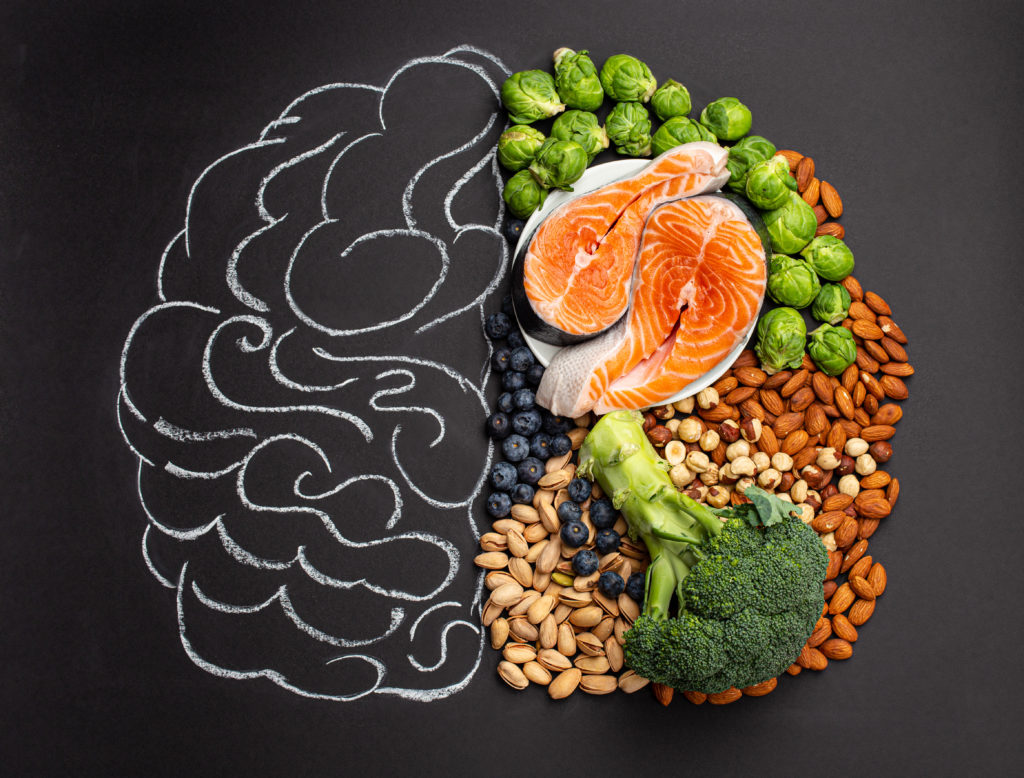
The human brain is in constant operation. It manages every thought and movement you make—even the ones you do unconsciously. Our brain requires a constant supply of fuel, otherwise called nutrition. Not all fuel is equal, premium nutrition means more agility, sharpness, and a positive mindset.
How the foods you eat affect how you feel.
Consuming proper nutrition helps the brain perform throughout the day. If harmful foods (such as processed or refined foods) reach the brain, it has little capacity to reduce their negative effects. According to the Harvard Medical School, diets high in refined sugars, are a staple example of diets that explicitly harm the brain and its functionality. In addition to refined sugars worsening your body’s regulation of insulin, they also promote inflammation and oxidative stress. Multiple studies have found an association between a diet high in refined sugars and hindered brain function — and a worsening of depression symptoms.

How to Incorporate a Nutritious Diet
Try to be self-aware of how eating different foods makes you feel over time, the change can be felt immediately or within a few days. Do not get discouraged if you do not feel any changes in the first few days, this process may take time. Challenge yourself to a consciously healthy diet for the rest of March. That includes cutting out all artificial prepackaged foods and unnatural sugars. Analyze how you feel. Then introduce some cheat foods back into your diet, one by one, and reassess.
Your personal discipline and self-awareness might surprise you. People who make a nutritious diet shift cannot believe how much better they feel both physically and mentally, in comparison to when they reintroduce the foods that are known to cause inflammation and stress.
How can you maintain a nutritious diet?
Workit Health has developed a nutrition checklist to improve your food choices, whether that be a healthy breakfast, workout meal, or healthy snack.
- Include a variety of healthy foods from all the food groups on a regular basis.
- Consider eating the foods you have at home before going out to eat.
- Buy only the amount that can be eaten or frozen within a few days and plan to use leftovers later in the week.
- Be mindful of portion sizes and eat balanced meals (protein, fruits, vegetables, healthy carbohydrates).
- Find activities that you enjoy and be physically active most days of the week.
Maintaining a nutritious diet isn’t an easy task, but the mental health benefits are worth the extra challenge.